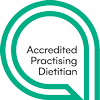Diet culture – what is it and why is it harmful?

Content Warning: In this blog I’m talking about diet culture and the harm that it does. There is mention of dieting, disordered eating, eating disorders, and stigmatising language is used in the research articles that are linked as references (but not in the blog itself). Please proceed with care.
Chances are you have actively tried to lose or maintain your weight at one time or another or you know someone who has. For women and people in bigger bodies, chronic dieting has often been part of their lives for as long as they can remember. Yet decades of science confirms what many know through experience to be true: most people who lose weight eventually regain the weight they lose. Less often talked about is the harm that dieting is associated with which includes weight cycling (also known as yoyo dieting and which in itself is associated with an increased risk of cardiovascular disease, Type 2 Diabetes and high blood pressure), becoming pre-occupied with food and body, increased body dissatisfaction, disordered eating, and eating disorders. Why then, are we still spending an enormous amount of time, energy and money trying to lose weight?
Why do we spend an enormous amount of time, energy and money trying to lose weight?
The answer is that we live in a world steeped in diet culture – which Tribole and Resch describe in their book Intuitive Eating – A revolutionary anti-diet approach as a belief system that equates being thin with health, happiness and moral virtue. It focuses on and values weight, shape, and size over health and well-being. It demonises certain foods or even whole food groups, and disproportionately harms women, people in larger bodies, people of colour and people with disabilities, damaging both their mental and physical health. Others have described diet culture as a “moral hierarchy of bodies fuelled by health myths”. These cultural ideas are driven by broad systems and structures of power, such as patriarchal ideals about women’s bodies, ideals around thinness and health, and industries that profit enormously from body dissatisfaction and confusion around food and eating.
Diet culture can be difficult to recognise because it’s so deeply engrained in our society. How often have you heard someone say:
- If I could just lose a few kilos, then I’d feel more comfortable.
- I’ll work this snack/meal off with a walk.
- You look great! Have you lost weight?
- I’m being good, I’ll just take a coffee.
- I’ve earnt this piece of cake after my workout this morning.
- I’ve lost 10kg and the doctor said, “just keep doing whatever you’re doing”.
- All I’ve eaten today is junk food.
These statements seem harmless enough. That’s because we’ve been hearing statements like these our whole lives, so we accept them as normal. The problem is that these beliefs are harmful – because they promote the myth that thinness and dieting equate to health, happiness and moral virtue.
Where you’ll find diet culture
Diet culture goes beyond specific diets and extends to the way that food, exercise, bodies, and health are culturally viewed, discussed, and valued. Here are just a few examples of places or situations you’ll find diet culture:
- Books and advertisements for diets like keto, low carb, “clean eating” and intermittent fasting.
- Words like “good”, “bad”, “sinful”, “junk”, “rubbish”, “healthy/unhealthy” used to describe food or detox, fasting, cheat day and juice cleanse.
- Friends or colleagues who say they aren’t eating carbs, or who tell you they need to work out longer to compensate for having dessert.
- Physical trainers who give diet and nutrition advice when you’re there to work on your flexibility or strength.
- Healthcare providers who want to talk about your weight when you come in for something completely unrelated, like an ear infection.
- Healthcare providers who suggest the cause of your healthcare complaint is your body size and shape and neglect to offer appropriate and timely investigations and treatment.
- Descriptions of clothing or beauty products that promise to make you look thinner.
- People commenting on other people’s bodies and food choices.
- Weighing of kids in school and “nutrition” assignments like calculating a BMI or calories or grouping foods in a hierarchy.
- Someone suggesting you need to lose weight (and often disguised as concern about your health).
- TV, news, cartoons, movies, books, advertisements, social media where stereotypes about people in bigger bodies are perpetuated.
What this means is that you don’t have to be following a “diet” to be caught up in the culture of dieting. It is all around us and we are literally swimming in it.
It’s not a diet, it’s a healthy lifestyle
Diet culture has also become very clever at rebranding and disguising itself as “health and wellness” because “diet” has become a dirty word. “Clean eating” for example claims to be “a lifestyle” not a diet. Even the largest diet companies are shifting direction. For example, Weight Watchers rebranded itself several years ago and has a new name (WW). “Healthy living” blogs together with their related social media feeds have become enormously popular and influential but often promote food restriction and unhealthy attitudes to food, body image and exercise. So, while you may believe you have never intentionally tried to lose weight, if you’ve pursued “health and wellness” by adopting a way of eating that involves food rules and restriction then you’ve actually been caught up in diet culture. It’s not your fault, of course – we have all been exposed to the harmful messages of diet culture growing up without realising it, including our parents and grandparents. The point I am making is that diet culture is so entrenched in everyday life, it’s important to be aware of it and the harm that it does. All of us, including our children, are receiving diet culture’s message that thinner bodies are more valuable and unfortunately, and too many are adopting dangerous and ineffective dieting behaviours in response to it.
The side effects of dieting that don’t get talked about enough
Dieting is associated with a number of side effects that are often left out of the conversation including:
- Obsessing about food and body
- Disordered eating and eating disorders
- Bingeing
- Shame, guilt and anxiety when the diet fails
- Slower metabolism
- Loss of muscle mass
- Rebound weight gain (weight cycling)
- Loss of innate hunger and fullness cues
- Social withdrawal
Diet culture also perpetuates weight stigma which is associated with harm like avoidance medical care and physical activity by people living in larger bodies.
If not dieting, then what?
The science is clear, we can pursue health if we want to without focussing on altering weight or shape, by adopting habits known to benefit overall health. The most beneficial health behaviours are ones that support both physical and psychological well-being (see below). We want to keep doing them (if we can) regardless of what shape or size we are. Notice I’ve used the word “enjoyable” in relationship to food and exercise. This is key, otherwise it will be difficult to sustain the behaviour. For example, there is no point going to the gym if you don’t enjoy it. Far better to opt for something else you truly enjoy (and are likely to keep doing) like going for a walk. The same applies to food. You don’t need to eat foods you don’t like. Choose foods you actually enjoy eating and if possible, focus on nutritional quality and variety (if your situation allows it). *Note, not everyone will have access to or be able to afford enough and a variety of nutritious foods, have access to safe, green spaces to move or be able to afford preventative healthcare

Habits that promote overall health
- Regularly engaging in enjoyable physical activity
- Eating a variety of nutritious and enjoyable foods*
- Eating when you’re hungry and allowing yourself to eat enough*
- Maintaining meaningful social connections
- Getting enough quality sleep
- Managing stress levels
- Working to respect your body
- Getting preventive healthcare, including screening tests*
Adopting habits like these rather than focussing on altering body size or shape is known as the weight inclusive approach. It accepts and respects people of all shapes and sizes and acknowledges that not all factors that contribute to health are within our personal control including our genetics and the social determinants of health. Intuitive Eating is an example of a weight-inclusive approach that is evidence-based and aligns with the principles of Health At Every Size®.
If you’ve already heard or read about Intuitive Eating, you probably know that reject the diet mentality is the very first principle. This is because actively trying to lose weight interferes with tuning in to the physical sensations arising from your body including hunger and fullness, and also the physical sensations that accompany any emotions you might be feeling – a key skill in becoming an Intuitive Eater. If you feel ready to learn more, you’ll find my blog on rejecting the diet mentality here.
Ready to take the next step? Contact me and request a complimentary call to find out more about Intuitive Eating and how it can help you truly nourish yourself – body, mind and soul.



